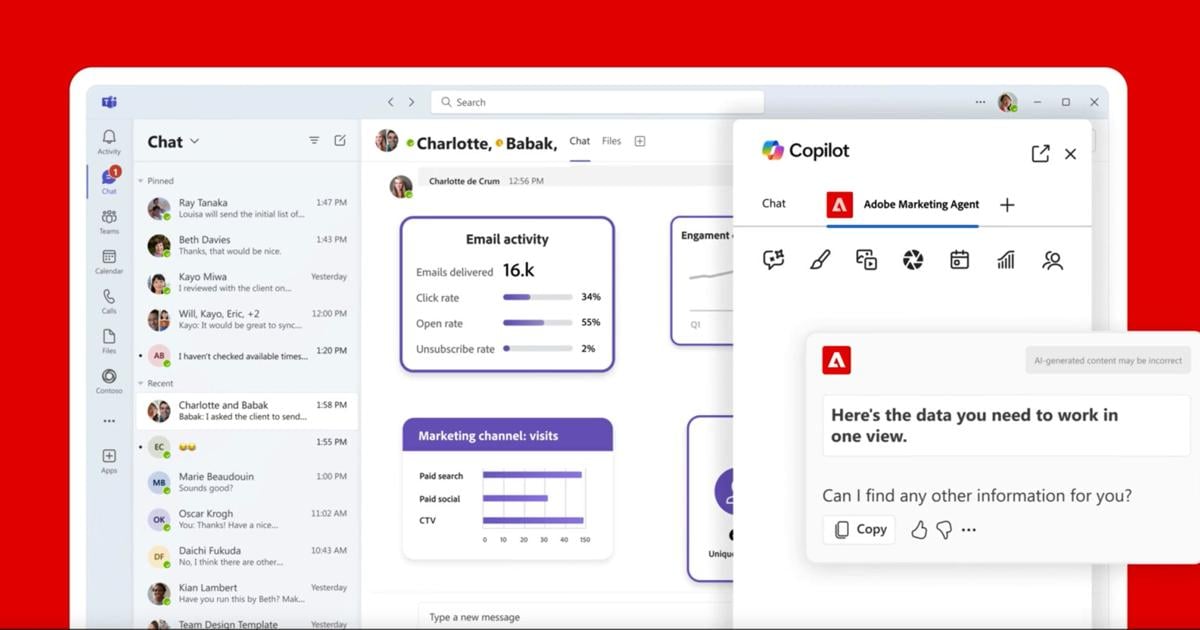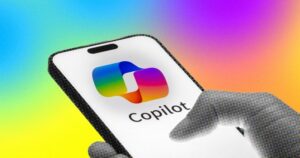Adobe and Microsoft Enhance Marketing Capabilities with AI Agents in Microsoft 365 Copilot

Adobe and Microsoft Collaborate to Enhance Marketing with AI
Adobe and Microsoft have joined forces to introduce advanced marketing capabilities within Microsoft 365 Copilot. This new integration aims to empower marketers by leveraging artificial intelligence (AI) to streamline their processes and improve productivity.
Understanding Microsoft 365 Copilot
Microsoft 365 Copilot is an innovative tool designed to enhance the functionality of various Microsoft applications like Word, Excel, and Outlook. By incorporating AI, it assists users in completing tasks more efficiently. For marketers, this integration means they can tap into powerful AI tools to manage their campaigns more effectively.
Key Features of the Integration
Here are some notable features that the collaboration between Adobe and Microsoft focuses on:
1. Content Creation and Optimization
- With Copilot, marketers can generate compelling content quickly. The AI analyzes existing text and suggests improvements to enhance clarity and engagement.
- It provides templates and formatting options that significantly reduce the time spent on creative tasks.
2. Data Insights and Analytics
- The integration enables marketers to harness data insights directly from their campaigns. By analyzing consumer behavior and engagement metrics, Copilot allows for real-time adjustments to strategies.
- AI-driven analytics helps marketers identify trends and forecast outcomes, making their efforts more targeted and effective.
3. Enhanced Collaboration
- Teams can collaborate seamlessly through shared platforms within Microsoft 365. The AI can help track progress, assign tasks, and keep everyone aligned on project goals.
- Features like comment suggestions and version control also make collaboration easier and more efficient.
Benefits for Marketers
The relationship between Adobe and Microsoft provides numerous benefits for marketing professionals:
Increased Efficiency: By automating repetitious tasks, marketers can focus on strategy and creativity rather than administrative work.
Improved Campaign Performance: AI insights allow for data-driven decisions, which can lead to more successful marketing initiatives.
- Greater Personalization: AI tools help marketers create customized experiences for consumers, increasing engagement and conversion rates.
The Role of AI in Marketing
AI’s role in marketing is becoming increasingly significant. Here are a few ways AI is reshaping the landscape:
1. Predictive Analytics
- Marketers can utilize AI to predict customer behavior and preferences, allowing for more tailored marketing tactics.
2. Chatbots and Customer Service
- Many companies integrate AI-powered chatbots into their customer service channels, providing instant support and addressing customer inquiries around the clock.
3. Targeted Advertising
- AI analyzes vast amounts of data to determine the best audiences for advertising campaigns, optimizing spending and improving ROI.
Real-World Applications
Numerous companies are already utilizing the capabilities offered by Adobe and Microsoft’s integration:
Retail: Retailers are using AI-driven insights to tailor promotions and offer personalized shopping experiences to customers.
Finance: Financial services firms apply predictive analytics to identify potential clients based on their existing customer data.
- Healthcare: Healthcare providers employ AI to improve patient engagement through personalized communication and marketing strategies.
Future of Marketing with AI
The collaboration between Adobe and Microsoft is setting the stage for the future of marketing. With ongoing advancements in AI technology, marketers can expect to see even more innovative tools and strategies that will change how they approach their work. AI not only helps in optimizing current practices but also opens doors for entirely new ways to engage with customers, enhance brand loyalty, and drive business growth. The journey is just beginning, and the possibilities are vast.






